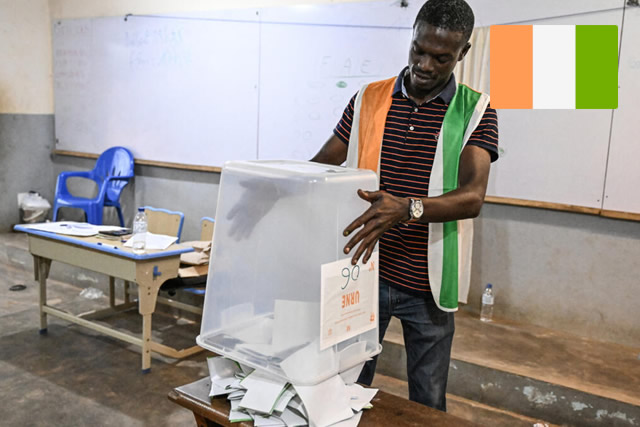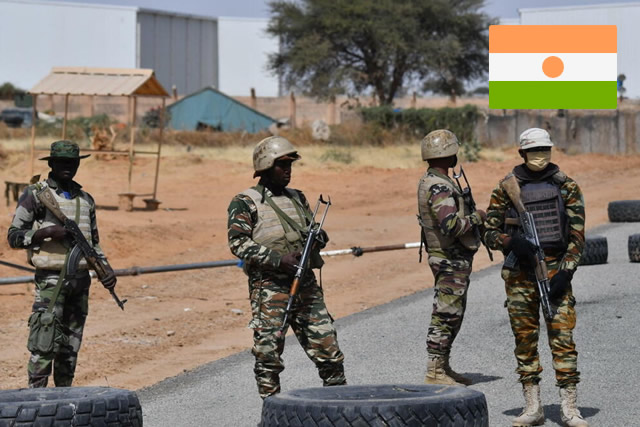
Ivory Coast: Spike in Demonstrations Amidst Local Elections in September 2023
October 3, 2023
Niger: Persisting Jihadist Aggression in September 2023
October 10, 2023
Image Source: Bloomberg.com
Summary
In September 2023, Nigeria experienced a slight downtick in security incidents and a notable decline in associated fatalities compared to the preceding period. The most recurrent incidents were violence against civilians. Civilians constituted the most active security actors, followed by unidentified armed groups and protesters. The enduring threat from non-state armed groups, especially Boko Haram and the Islamic State of West Africa (ISWA), remained pronounced, primarily in the Northeast. While the economic strain, marked by soaring inflation rates, has likely contributed to the prevailing unrest, the continuous activities of various armed groups signify a multi-faceted security challenge. The implications of September's security dynamics project a probable upsurge in civil unrest and continued activities of non-state armed groups, potentially straining military resources further and extending the security dilemma into the broader West African region.
Background
The economic backdrop in Nigeria is severely strained as inflation rates increased to a two-decade high of 26.72% in September. The depreciation of the naira following President Bola Tinubu’s economic reform measures which removed fuel subsidies is one of the key drivers behind Nigeria’s inflation, exacerbating the economic hardships faced by Nigerians. This economic pressure is compounded by multiple, ongoing security challenges across the nation. In the Northeast, the operations of Boko Haram persist, while the Northwest faces a growing Islamist insurgence and the continuation of violence by bandit groups. In the Southwest, separatist movements like the Indigenous People of Biafra (IPOB) continue to challenge the Nigerian state. The central region sees an escalation in farmer-herder conflicts, fueled by land scarcity and ethnic tensions. The Nigerian armed forces, deployed in two-thirds of the country's states, are stretched thin combating these myriad threats.
Analysis
- The enduring violence across multiple regions, especially in Niger, Bauchi, Kebbi, and Borno states, very likely stems from the interplay of economic hardships, resource conflicts, and activities of various non-state armed groups. Despite a marginal decline in incidents during September, the persistent high rate of violence against civilians and armed confrontations is very likely indicative of non-state groups exploiting the existing social and economic fissures to further their agendas. These strategies likely aim to augment their influence by eroding public trust in the government due to its perceived failure to shield civilians from violence.
- The intertwining of escalating economic hardship and security instability is likely becoming more pronounced. The public discontent stemming from economic policies such as the removal of fuel subsidies and naira devaluation is likely fostering a conducive environment for civil unrest. This economic strain is very likely amplifying the scope and impact of security incidents, challenging the state's capacity to maintain law and order. The ripple effects of civilian discontent are likely emboldening non-state armed groups to expand their operations to further destabilize the evolving landscape.
- The presence of 42 distinct security actors/groups active in September, including communal and ethnic militias alongside military forces and extremist groups, very likely suggests a complex and evolving security landscape. The variety of actors and motives very likely complicated the task of security forces, leading to challenges in reducing the number of security incidents.
Forecast
- The myriad of non-state armed groups will very likely increase their activities, capitalizing on the overstretched capacity of the Nigerian armed forces. The diversification of motives and modi operandi among these groups will very likely complicate the security landscape, likely leading to a more fragmented and unpredictable threat environment. The expanding areas of operation for these groups will likely further strain military and security resources, likely diminishing the capability of the armed forces to counteract the different movements without external support.
- As economic pressures mount and discontent with policy reforms grow, civil unrest and violent protests will very likely increase in the upcoming months. A growing number of protests will very likely increase the likelihood of violent confrontations between civilians and government forces, resulting in further scrutiny of the ruling government. The potential escalation in civil unrest is likely to challenge the state's security apparatus, possibly leading to a reactive security posture that could exacerbate tensions. National and trans-national non-state armed groups will very likely leverage civil unrest to further their agenda, likely amplifying their operations and recruitment efforts as security resources become further strained.
- It is possible that the transnational nature of some of the non-state armed groups, coupled with the potential for displaced populations to cross borders, will foster a regional security dilemma. Cross-border movements will likely strain the already limited resources of neighboring countries, creating a ripple effect of instability. The formation of alliances between non-state armed groups across borders will likely compound the existing security challenges, making a coordinated national and regional response more challenging to orchestrate.
